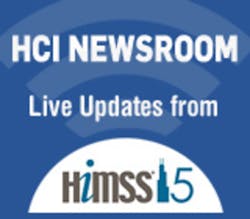With the Senate passing a repeal of the Sustainable Growth Rate (SGR) this week, ICD-10’s deployment in 2015 may be nearing lock status.
The SGR repeal bill, unlike last year’s temporary patch, did not include any provisions that would delay implementation of the new code-set. In fact, when someone tried to put that it, Congressional leadership went out of its way to remove it, according to a report.
With ICD-10 perhaps moving forward, once and for all, the Reston, Va.-based Workgroup for Electronic Data Interchange (WEDI) recently pushed out a survey on industry readiness. What they found was a good deal of uncertainty when it comes to providers and payers being ready for the switchover.
Healthcare Informatics Senior Editor Gabriel Perna got a chance to discuss these results at great length with the CEO of WEDI, Devin Jopp, Ed.D at the 2015 Healthcare Information and Management Systems Society (HIMSS) Conference in Chicago. Below are excerpts from that interview.
How would characterize industry readiness to ICD-10 based on your survey?
We’re seeing payer readiness improving and we’ve seen provider readiness start to decline. I think we attribute a lot of that to multiple delays. They’re thinking it's been delayed twice, it might happen again. Providers, when they pull back their resources, it’s not like they have nothing to do. There's meaningful use, there’s a litany of other things that have to be done. We’ve seen the vendor readiness improve.
We're in the mode we’re trying to help companies implement. We’re telling them that, “Yes, this going to happen. When we get to Oct 1st, what are things you need have in place in order to get through any challenges you might have.”
Did people take advantage of the extra time?
It depends who you talk to. Vendors have used that time. Payers probably didn't that time as much as some of the others. For providers, it depends. If you’re a small physician practice, you probably took a deep sigh of relief. Larger hospital systems who were already ready for ICD-10, it was probably slightly detrimental because they’ve invested in all the training already. I talked to a hospital recently, a smaller health system, and they lost approximately half a million in training.
If Oct. 1, 2015 is the date, will providers be ready?
I think the health systems will be ready, by and large. A lot of them are already ready. If I had to guess, we’re going to see a lot of problems with the smaller providers. I can’t imagine it’s a lack of ICD-10 knowledge. There is a lot of knowledge out there on ICD-10. There are code cheats. We’ve talked about how most providers will be using less than 100 codes. The question mark is are the vendors for the small guys going to ready? You can do your best training as a provider, but the minute you put your ICD-10 code in the billing system what if it [doesn’t understand the new code]? You're in trouble. These [smaller providers] are not just using cloud-based software. They could be family-created, small systems. So I think the biggest problem will be the readiness of these small-practice billing systems if I had to guess.
What will happen if they aren’t ready?
What I believe will happen is they’ll drop to paper. Everyone has to accept paper claims. You’ll see physicians drop to paper, submit the paper claims. For payers, turnaround time is slower for payment. It’s heartache for payers to have to manage the paper process. They don't want that. I expect that's what you would see will happen. There will be lots of frustration around having to do that but it’s also the show will go on. You’ll just process paper.
Should there be another delay?
We don't have an official position on that.
Is there enough testing of ICD-10 going on right now?
With Medicare, I think the answer is that there's always room for more. There is a magic number they’ve set. I’m sure they have their own reasons why that is. We've heard frustration on getting the actual reimbursement amount. What happens in some of the testing scenarios, they’re turning around the reimbursement rate in 9s, rather than 10s. People are wondering if they’re getting a real 10 test if they can’t get that level of specificity back around how much I would be paid?
The Centers for Medicare and Medicaid Services’ (CMS) recent acknowledgement testing produced an acceptance rate of 80 percent. The two sides have argued on that, with some saying it’s good news, others saying it’s not good. What do you think?
Statistics can tell you whatever story you want, depending on your view of the world. Some folks look at that 80 percent and say, “This is terrible.” Others will look at it and say, “That's pretty good.” We don’t have any official stance but it's an interesting conundrum. You’d expect that those people who are excited about ICD-10, will continue to be excited about it and those that aren't, will continue to have those feelings. It's not for a lack of education at this point. It’s about what each organization believes.
Any final predictions/insights?
Again, I think the main piece is get ready. External testing is what we're trying to focus on. Test with as many folks as possible. Some of the covered entities will do selective testing with some of their larger group. That's good and that might be statistically valid, but it might not be. To the extent we can have folks test with multiple groups and under different scenarios is a good thing.


